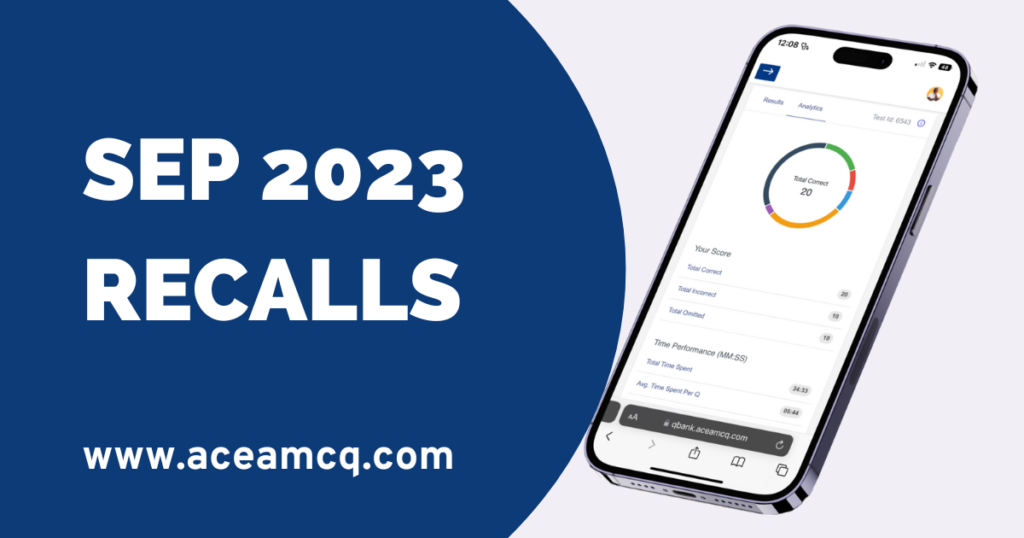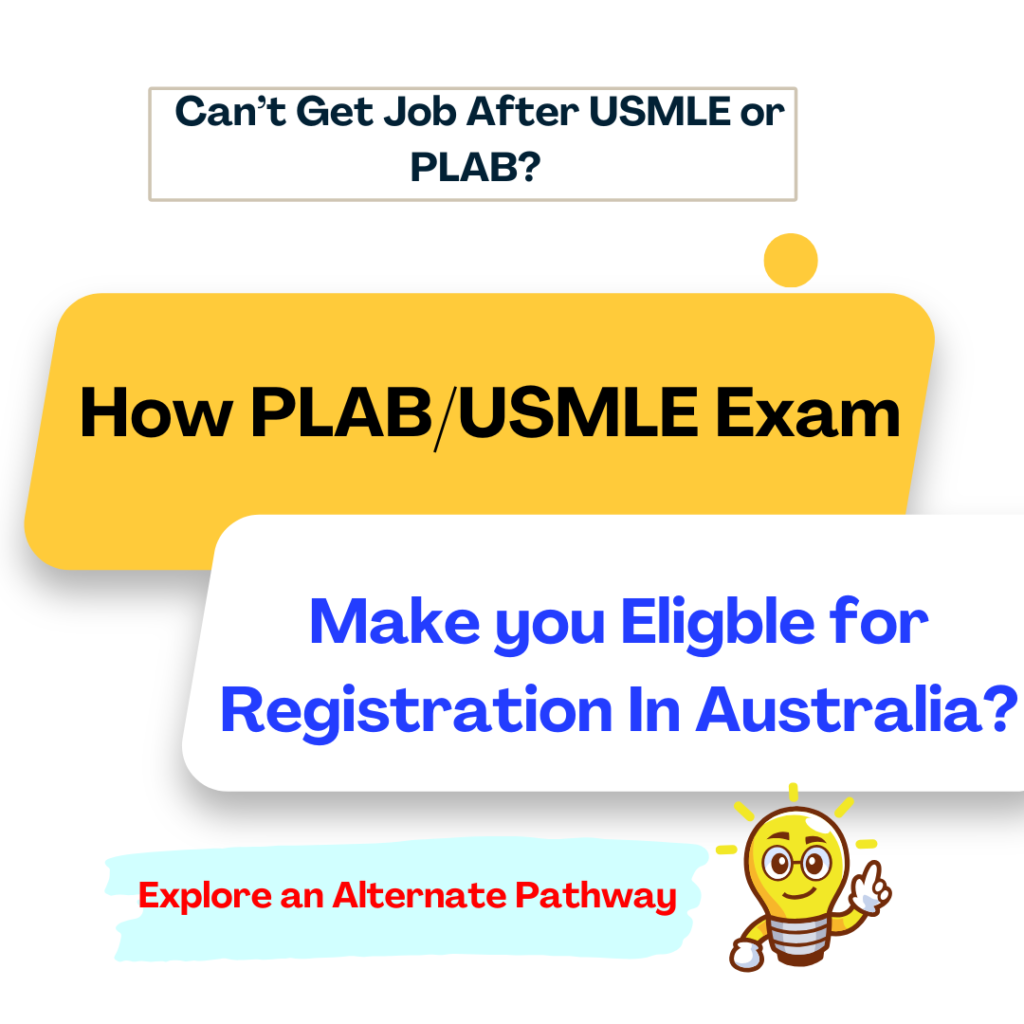This Guide provides Complete information for IMGs on selecting and pursuing pathways to working in Australia. Complete understanding of the pathways is crucial in this journey, The Article emphasizes on providing a deep insight into understanding of the IMGs pathways to help you clear many of your doubts and help you opt for the pathway that best suits you.
Selecting The Pathway:
There are Different pathways under which an IMG can work as doctor and pursue their Career in Australia, the most relevant pathways to us here are 3 ;
- 1) Standard pathway
- 2) Specialist pathway
- 3) Competent authority pathway.
We provide Complete information on Each pathway in the Next section
In Brief
- Specialists: Specialists can choose between the Standard Pathway or Specialist Pathway. In the Specialist Pathway, they don’t need to take the AMC exams but must meet other criteria. Specialists can also opt for the Standard Pathway if they prefer.
- Non-Specialists: Non-specialists can follow the Standard Pathway, which involves passing the AMC exams. If they meet specific criteria, they may also qualify for the Competent Authority Pathway, which doesn’t require AMC exams.
- Competent Authority Pathway: This pathway is available to those who have worked in an equivalent healthcare system recognized by the Australian Medical Council (AMC), such as those who have passed exams like USMLE or PLAB, and satisfy other requirements.
It’s important to note that the specific eligibility criteria and requirements may vary, and IMGs should always verify the latest information from the relevant authorities when pursuing these pathways.
Table of Contents
Standard Pathway
IMGs who have a primary qualification in medicine and surgery awarded by a training institution recognized by the AMC are eligible to apply for assessment under this pathway. The Standard pathway is for IMGs seeking general registration with the Board. This pathway applies to IMGs who are not eligible for the Competent Authority pathway or the Specialist Pathway. Opting for this pathway, you are required to take AMC part 1 (aka AMC MCQs CAT EXAM) and AMC part 2 ( AMC CLINICAL EXAM).
AMC part 1 Exam is easy to pass With a smarter study plan and the Right Resources, with AceAMCQ we have got you all the resources inside one subscription including 3 Amc Qbanks (8000 practice Questions), Digital subscriptions for Australian Guidelines resources like eTG therapeutic Guidelines, Amazing solved Recalls Bank containing All solved recalls till september 2023, Books, Notes, Mocks Simulating actual exam enviroment and High Yield Questions.
📚 Unlock AMC Solved Recalls & Qbank!👆👆👆
Eligibility: IMGs with a primary qualification in medicine and surgery awarded by a training institution recognized by the Australian Medical Council (AMC) are eligible for assessment under the Standard Pathway. Additionally, those with qualifications recognized by both the AMC and the World Directory of Medical Schools (Check your Medical school in WDOMS here ) can also apply through this pathway.
Purpose: The Standard Pathway is for IMGs who seek general registration with the Medical Board of Australia. This pathway is intended for IMGs who do not qualify for the Competent Authority Pathway or the Specialist Pathway.
Application Process: IMGs applying for the Standard Pathway should directly apply to the Australian Medical Council (AMC).
AMC CAT MCQ Examination: IMGs pursuing the Standard Pathway must successfully pass the AMC CAT MCQ (Computer Adaptive Test – Multiple Choice Questions) Examination before they can apply to the Medical Board for registration.
Specialist Pathway Option: In some cases, IMGs with a primary qualification recognized by both the AMC and WDOMS, who have also met all the training and examination requirements in their specialty in their home country, may be eligible to apply for assessment under the Specialist Pathway. For specialist recognition or an area of need position, IMGs should apply directly to the relevant Specialist Medical College for assessment.
The AMC MCQ Part 1 exam holds recognition not only in Australia but also in the Republic of Ireland and New Zealand. Doctors who successfully pass this exam can proceed to take the PRES 3 exam in Ireland or the NZREX exam in New Zealand. Furthermore, graduates who have completed their internships in certain countries, including Australia, New Zealand, Pakistan, Sudan, South Africa, and Malaysia, are granted an exemption from the PRES 3 exam. They can directly apply for registration with the Irish Medical Council.
Competent Authority Pathway
The Competent Authority pathway also known as CAT pathway is for the overseas-trained doctors specialists and non-specialists, including general practitioners. This pathway leads to obtaining general registration(For information on types of Registration check our other Article). International Medical Graduates (IMGs) who have either passed recognized examinations or completed training through a Board-approved competent authority are eligible to seek assessment via this pathway.
For those interested in the Competent Authority pathway, the application process involves direct submission to the Medical Board of Australia (the Board) for provisional registration. This pathway is specifically designed for individuals who have experience in healthcare systems that are comparable to Australia’s, such as those in the USA, UK, Canada, New Zealand, and Ireland.
Importantly, IMGs applying through the Competent Authority pathway are not required to undertake the AMC exams. Once successfully assessed through this pathway, they receive provisional registration, which can progress to general registration after working in Australia for one year.
Conditions for eligibility to apply for the Competent Authority pathway for general registration in Australia include:
- United Kingdom Medical School Graduates:
- Hold GMC Registration and possess at least 1 year of FY1 experience in the United Kingdom or equivalent internship experience in the UK or a country sanctioned by the United Kingdom.
- PLAB Qualifiers and GMC Registration:
- IMGs who have passed PLAB 1 and 2, are registered with the GMC, and have completed 1 year of FY1 experience in the United Kingdom or equivalent internship experience in the UK or a country recognized by the United Kingdom.
- Canadian Medical School Graduates or LMCC Qualifiers:
- Graduates of Medical Schools in Canada or IMGs who have completed all parts of the LMCC and possess 1 year of Residency Training experience in Canada or equivalent training experience in a country approved by Canada.
- United States Medical School Graduates or USMLE/NBME Qualifiers:
- Graduates of Medical Schools in the United States and IMGs who have successfully passed USMLE Step 1, 2CK and 3, or NBME’s 1, 2, and 3, and have completed two years of Residency Training Experience in the US.
- New Zealand Medical School Graduates:
- Holders of medical degrees from New Zealand Medical Schools who have completed the NZ Registration Examination and have completed two approved internship runs recognized by MCNZ.
- Ireland Medical School Graduates:
- Graduates of Medical Schools in Ireland who have completed internship experience in Ireland or a country approved by Ireland and are registered with the Irish Medical Council.
If you are an international medical graduate (IMGs) and you have achieved general registration in the United States, Canada or the United Kingdom (but not the Republic of Ireland) you are also eligible for the competent authority pathway.
So it is important to note here that there is no competent authority pathway for IMGs to gain full registration in Ireland and then attempt to gain registration in Australia. You have to have graduated from a medical school in Ireland.
Specialist Pathway
The Specialist Pathway is designed for overseas-trained specialists who have met all the training and examination prerequisites required to practice in a specialized field in another country. The process involves a thorough assessment of your qualifications and may include interviews. It typically incurs a cost ranging (10,000 AUD or more).
A general advice to specialists is to consider pursuing this pathway only if they possess Western specialist experience or have substantial non-Western experience after completing their specialization. Specialists who have recently completed their fellowships may find the Standard Pathway more suitable.
Assessment through the Specialist Pathway can lead to various outcomes. It’s uncommon to receive complete equivalence and immediate permission to work as a specialist. Typically, they may recognize a portion of your training and request further training in the same field in Australia, along with passing additional exams. For instance, they might approve two years of FCPS training and require you to complete the remaining two to three years in Australia while passing the required exams.
It’s important to note that the assessment process and job search are separate endeavors. Once you receive your assessment result, you’ll need to secure a job on your own. Some specialties, like psychiatry, may offer more accessible entry, while fields like surgery can be exceptionally challenging.
For IMGs holding a specialist degree in any field from an institution outside Australia and wishing to practice that specialty in Australia, this pathway provides a potential route to achieve that goal.
Individuals holding a specialist degree may not need to undergo an internship. Their registration and pathway will be determined based on an assessment conducted by the relevant college or fellowship awarding body. Here’s a step-by-step explanation of the process:
- Primary Source Verification:
- The IMG should initiate the process by applying to the Australian Medical Council (AMC) for primary source verification of their medical qualifications.
- Application to Relevant Specialist Medical College:
- Following the AMC verification, the IMG needs to apply directly to the relevant specialist medical college using the provided application form.
- Assessment by Specialist Medical College:
- The college assesses the IMG’s qualifications and compares them against the criteria for an Australian-trained specialist in the same field of specialty practice.
- The assessment results in one of three categories: “not comparable,” “substantially comparable,” or “partially comparable.”
- Determination of Registration Type:
- The outcome of the assessment by the specialist medical college guides the type of registration the IMG may apply for with the Medical Board of Australia.
- The Medical Board makes the final decision regarding the granting of registration.
- Australian Health Practitioner Regulation Agency (AHPRA) Involvement:
- AHPRA, responsible for registration and accreditation in the healthcare sector, is involved in the registration process.
- Following assessment, the IMG might need to undergo a period of peer review oversight, which may include workplace-based assessments or supervised practice along with further training, possibly involving college assessments and examinations.
- Recognition as a Specialist:
- Once the IMG fulfills all the college requirements, the college can recommend to grant the IMG recognition as a specialist in Australia, enabling them to practice that field of specialty independently.
This process ensures that IMGs with specialist degrees are assessed appropriately and, upon meeting the necessary criteria and requirements, can achieve recognition as specialists in Australia and practice their specialty independently.
📚 Unlock AMC Solved Recalls & Qbank!👆👆👆
Short Term Training In Medical Speciality
The Short Term Training in a Medical Specialty Pathway is for International Medical Graduates (IMGs) who are either overseas-trained specialists or specialists-in-training aspiring to undergo a brief period, typically up to 24 months, of specialized or advanced training in Australia. It’s important to note that this pathway does not culminate in specialist registration within Australia.
Key points regarding this pathway:
- Pathway Objective:
- The pathway allows IMGs to pursue a short-term period of specialist or advanced training in Australia.
- This pathway does not Lead to specialist registration:
- IMGs aiming for specialist registration need to pursue the specialist pathway – specialist recognition, as this pathway does not lead to specialist registration in Australia.
- Eligibility Criteria:
- IMGs eligible for this pathway possess a primary qualification in medicine and surgery from a recognized training institution acknowledged by both the Australian Medical Council (AMC) and the World Directory of Medical Schools (WDOMS).
- Additionally, they have met all training and examination prerequisites to practice within their specific field of specialty in their home country.
- Alternatively, IMGs who are within two years of completing their specialist training overseas are also eligible.
- Application Process:
- Those interested in the Short Term Training in a Medical Specialty Pathway directly apply to the relevant specialist medical college for assessment. This is facilitated using a Board application form (AAMC-30).
- Board Registration Application:
- Following the assessment by the specialist medical college, IMGs can then apply to the Medical Board of Australia for registration based on the pathway’s outcome.
This pathway provides an opportunity for eligible IMGs to enhance their skills and expertise through a temporary period of advanced training in a medical specialty in Australia. However, it’s essential for them to understand that this pathway does not lead to specialist registration within the country. For that purpose, the specialist pathway – specialist recognition is the appropriate route to pursue.





